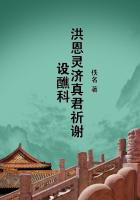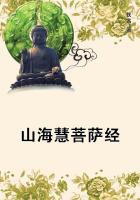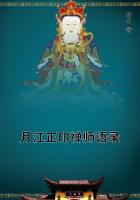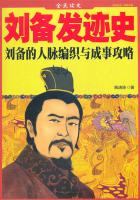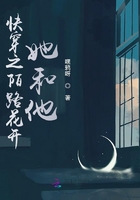Mme. d'Aiglemont had lost her mother in her early childhood; and as a natural consequence in her bringing-up, she had felt the influence of the relaxed notions which loosened the hold of religion upon France during the Revolution. Piety is a womanly virtue which women alone can really instil; and the Marquise, a child of the eighteenth century, had adopted her father's creed of philosophism, and practised no religious observances. A priest, to her way of thinking, was a civil servant of very doubtful utility. In her present position, the teaching of religion could only poison her wounds; she had, moreover, but scanty faith in the lights of country cures, and made up her mind to put this one gently but firmly in his place, and to rid herself of him, after the manner of the rich, by bestowing a benefit.
At first sight of the cure the Marquise felt no inclination to change her mind. She saw before her a stout, rotund little man, with a ruddy, wrinkled, elderly face, which awkwardly and unsuccessfully tried to smile. His bald, quadrant-shaped forehead, furrowed by intersecting lines, was too heavy for the rest of his face, which seemed to be dwarfed by it. A fringe of scanty white hair encircled the back of his head, and almost reached his ears. Yet the priest looked as if by nature he had a genial disposition; his thick lips, his slightly curved nose, his chin, which vanished in a double fold of wrinkles,--all marked him out as a man who took cheerful views of life.
At first the Marquise saw nothing but these salient characteristics, but at the first word she was struck by the sweetness of the speaker's voice. Looking at him more closely, she saw that the eyes under the grizzled eyebrows had shed tears, and his face, turned in profile, wore so sublime an impress of sorrow, that the Marquise recognized the man in the cure.
"Madame la Marquise, the rich only come within our province when they are in trouble. It is easy to see that the troubles of a young, beautiful, and wealthy woman, who has lost neither children nor relatives, are caused by wounds whose pangs religion alone can soothe.
Your soul is in danger, madame. I am not speaking now of the hereafter which awaits us. No, I am not in the confessional. But it is my duty, is it not, to open your eyes to your future life here on earth? You will pardon an old man, will you not, for importunity which has your own happiness for its object?""There is no more happiness for me, monsieur. I shall soon be, as you say, in your province; but it will be for ever.""Nay, madame. You will not die of this pain which lies heavy upon you, and can be read in your face. If you had been destined to die of it, you would not be here at Saint-Lange. A definite regret is not so deadly as hope deferred. I have known others pass through more intolerable and more awful anguish, and yet they live."The Marquise looked incredulous.
"Madame, I know a man whose affliction was so sore that your trouble would seem to you to be light compared with his."Perhaps the long solitary hours had begun to hang heavily; perhaps in the recesses of the Marquise's mind lay the thought that here was a friendly heart to whom she might be able to pour out her troubles.
However, it was, she gave the cure a questioning glance which could not be mistaken.
"Madame," he continued, "the man of whom I tell you had but three children left of a once large family circle. He lost his parents, his daughter, and his wife, whom he dearly loved. He was left alone at last on the little farm where he had lived so happily for so long. His three sons were in the army, and each of the lads had risen in proportion to his time of service. During the Hundred Days, the oldest went into the Guard with a colonel's commission; the second was a major in the artillery; the youngest a major in a regiment of dragoons. Madame, those three boys loved their father as much as he loved them. If you but knew how careless young fellows grow of home ties when they are carried away by the current of their own lives, you would realize from this one little thing how warmly they loved the lonely old father, who only lived in and for them--never a week passed without a letter from one of the boys. But then he on his side had never been weakly indulgent, to lessen their respect for him; nor unjustly severe, to thwart their affection; or apt to grudge sacrifices, the thing that estranges children's hearts. He had been more than a father; he had been a brother to them, and their friend.
"At last he went to Paris to bid them good-bye before they set out for Belgium; he wished to see that they had good horses and all that they needed. And so they went, and the father returned to his home again.
Then the war began. He had letters from Fleurus, and again from Ligny.
All went well. Then came the battle of Waterloo, and you know the rest. France was plunged into mourning; every family waited in intense anxiety for news. You may imagine, madame, how the old man waited for tidings, in anxiety that knew no peace nor rest. He used to read the gazettes; he went to the coach office every day. One evening he was told that the colonel's servant had come. The man was riding his master's horse--what need was there to ask any questions?--the colonel was dead, cut in two by a shell. Before the evening was out the youngest son's servant arrived--the youngest had died on the eve of the battle. At midnight came a gunner with tidings of the death of the last; upon whom, in those few hours, the poor father had centered all his life. Madame, they all had fallen."After a pause the good man controlled his feelings, and added gently:
"And their father is still living, madame. He realized that if God had left him on earth, he was bound to live on and suffer on earth; but he took refuge in the sanctuary. What could he be?"The Marquise looked up and saw the cure's face, grown sublime in its sorrow and resignation, and waited for him to speak. When the words came, tears broke from her.


